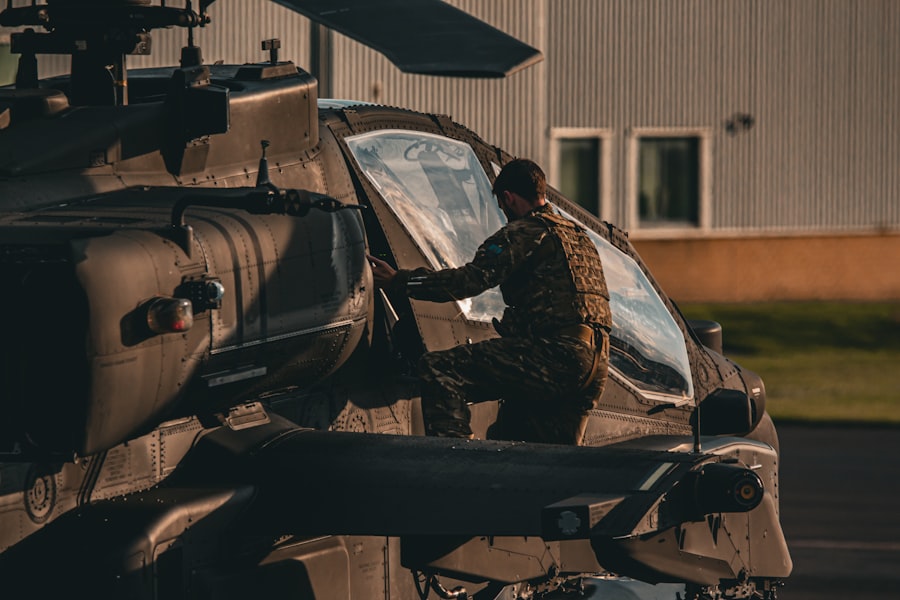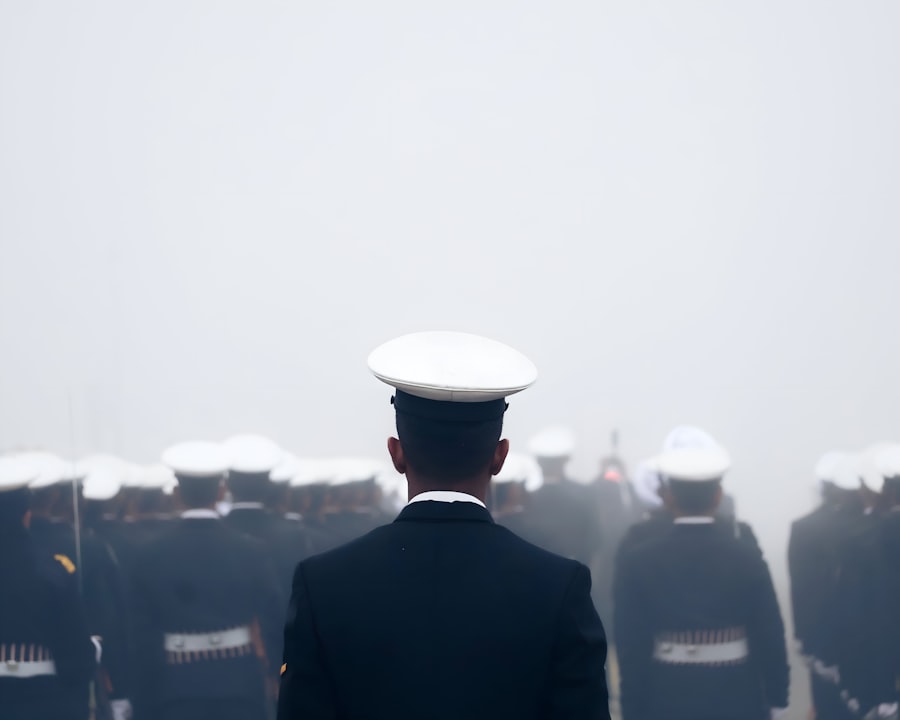Operation Northwoods was a covert plan developed by the United States Department of Defense in the early 1960s, during a time of heightened tensions between the U.S.
The operation was conceived as a series of deceptive tactics aimed at justifying military intervention in Cuba, particularly in the wake of Fidel Castro’s rise to power.
The proposal included a range of strategies designed to manipulate public perception and create a pretext for action against the Cuban government. Although the plan was never executed, it remains a significant example of the lengths to which military and government officials might go to achieve their objectives. The context surrounding Operation Northwoods is crucial for understanding its implications.
The Cold War was characterized by a pervasive fear of communism, and Cuba’s alignment with the Soviet Union posed a direct threat to U.S. interests in the region. As tensions escalated, military leaders sought ways to counteract this perceived threat.
Operation Northwoods emerged as a controversial response, reflecting the desperation and urgency felt by U.S. officials at the time. The plan’s exposure decades later has sparked debates about ethics, accountability, and the moral responsibilities of those in power.
Key Takeaways
- Operation Northwoods was a proposed false flag operation by the US government in the 1960s to justify military intervention in Cuba.
- Deception and manipulation tactics, such as creating fake terrorist attacks and hijackings, were planned to manipulate public opinion and garner support for war.
- Military leaders played a significant role in the planning and proposal of false flag operations, demonstrating a willingness to deceive the public for political gain.
- The ethical implications of Operation Northwoods raise concerns about the use of deception and manipulation to justify military action and the impact on civilian populations.
- The aftermath and public reaction to the declassified Operation Northwoods documents shed light on the importance of transparency and accountability in government actions.
The Deception and Manipulation Tactics Used
The tactics proposed in Operation Northwoods were rooted in deception and manipulation, aiming to create a narrative that would rally public support for military action against Cuba. One of the primary strategies involved staging incidents that could be portrayed as attacks on American citizens or interests. By fabricating events that appeared to be acts of aggression from the Cuban government, military leaders believed they could galvanize public opinion and justify a military response.
This manipulation of information highlights a troubling willingness to exploit public sentiment for political ends. Moreover, the plan included various forms of psychological warfare designed to mislead both domestic and international audiences. For instance, the operation suggested using fake news reports and staged incidents to create an atmosphere of fear and urgency.
By controlling the narrative surrounding these events, military leaders aimed to shape perceptions and influence decision-making processes. This reliance on deception raises significant ethical questions about the integrity of those who would engage in such tactics, as it undermines trust in government institutions and erodes the principles of transparency and accountability.
The Proposed False Flag Operations

At the heart of Operation Northwoods were several proposed false flag operations, which are covert actions designed to deceive by making it appear as though they were carried out by another party. One notable suggestion involved orchestrating attacks on U.S. military installations or ships, which could then be blamed on Cuba.
This would not only serve as a justification for military intervention but also create a rallying point for American citizens who might otherwise be hesitant about engaging in conflict. Another chilling proposal included the idea of hijacking planes and staging bombings, all while framing these acts as Cuban aggression. Such extreme measures illustrate the lengths to which planners were willing to go to achieve their objectives.
The concept of false flag operations is fraught with moral implications, as it involves sacrificing innocent lives and manipulating public perception for strategic gain. The chilling nature of these proposals serves as a stark reminder of the potential for abuse inherent in military planning when ethical considerations are sidelined.
The Role of Military Leaders in the Planning
| Metrics | Importance | Key Considerations |
|---|---|---|
| Strategic Planning | High | Long-term objectives, resource allocation |
| Tactical Planning | Medium | Short-term objectives, operational details |
| Risk Assessment | High | Identifying potential threats and vulnerabilities |
| Resource Management | High | Optimizing personnel, equipment, and budget |
Military leaders played a pivotal role in the development and promotion of Operation Northwoods. High-ranking officials within the Department of Defense were instrumental in crafting the plan, reflecting a culture that prioritized aggressive tactics over diplomatic solutions. The involvement of military leaders underscores a broader trend within military institutions, where strategic objectives can sometimes overshadow ethical considerations.
This dynamic raises questions about accountability and responsibility among those who wield significant power. The support for Operation Northwoods among military leaders also highlights a troubling mindset that can emerge during times of crisis. Faced with perceived threats, there can be a tendency to resort to extreme measures without fully considering the long-term consequences.
The willingness of military officials to endorse such drastic actions reveals a disconnect between strategic imperatives and moral obligations. This disconnect can have far-reaching implications, not only for those directly involved but also for society as a whole, as it fosters an environment where ethical boundaries are blurred.
The Ethical Implications of Operation Northwoods
The ethical implications of Operation Northwoods are profound and multifaceted. At its core, the operation represents a blatant disregard for human life and the principles of justice and fairness. By proposing actions that would intentionally harm innocent civilians, military planners demonstrated a willingness to sacrifice ethical standards for perceived national security interests.
This raises critical questions about the moral responsibilities of those in power and the extent to which they should be held accountable for their actions. Furthermore, Operation Northwoods serves as a cautionary tale about the dangers of unchecked power within government institutions. When military leaders prioritize strategic objectives over ethical considerations, it can lead to a culture of impunity where moral boundaries are easily transgressed.
The implications extend beyond individual actions; they reflect systemic issues within institutions that may prioritize loyalty and obedience over ethical conduct. This underscores the need for robust oversight mechanisms to ensure that ethical standards are upheld in military planning and operations.
The Impact on Civilian Populations

The proposed actions within Operation Northwoods would have had devastating consequences for civilian populations, both domestically and internationally. By fabricating incidents that could be blamed on Cuba, military planners risked inciting violence and chaos that would inevitably affect innocent lives. The potential for collateral damage raises serious ethical concerns about the morality of using civilians as pawns in geopolitical strategies.
Moreover, the psychological impact on civilian populations cannot be overlooked. The fear generated by staged attacks would have created an atmosphere of paranoia and distrust, further exacerbating tensions between nations. Such manipulation not only endangers lives but also undermines social cohesion and stability within communities.
The long-term repercussions of such actions can reverberate through generations, leaving scars that persist long after the immediate crisis has passed.
The Aftermath and Public Reaction
The revelation of Operation Northwoods decades later sparked significant public outrage and debate regarding government transparency and accountability. Many citizens were shocked to learn that their government had considered such extreme measures to justify military action. This revelation led to calls for greater oversight of military operations and increased scrutiny of government decision-making processes.
The public reaction highlighted a growing demand for accountability from those in power, particularly in matters involving national security. In addition to public outrage, the exposure of Operation Northwoods contributed to a broader skepticism toward government institutions. Many citizens began to question the motives behind official narratives and became more vigilant about holding their leaders accountable for their actions.
This shift in public perception underscores the importance of transparency in governance, particularly when it comes to matters that can profoundly impact lives and societies.
Lessons Learned from Operation Northwoods
Operation Northwoods serves as a critical case study in understanding the complexities of military ethics and decision-making processes. One key lesson is the importance of maintaining ethical standards even in times of crisis. The willingness to resort to deception and manipulation for strategic gain can have far-reaching consequences that extend beyond immediate objectives.
Upholding ethical principles is essential not only for maintaining public trust but also for ensuring that actions taken in the name of national security do not compromise fundamental human rights. Another important lesson is the need for robust oversight mechanisms within military institutions. Ensuring that decision-making processes are transparent and accountable can help prevent abuses of power and protect against unethical practices.
By fostering a culture that prioritizes ethical conduct alongside strategic objectives, governments can work toward building trust with their citizens while navigating complex geopolitical landscapes.
Comparisons to Other Historical False Flag Operations
Operation Northwoods is not an isolated incident; it shares similarities with other historical false flag operations that have occurred throughout history. For instance, events such as the Reichstag Fire in Germany or the Gulf of Tonkin incident illustrate how governments have manipulated information to justify military action or consolidate power. These comparisons highlight a recurring theme: when governments prioritize strategic objectives over ethical considerations, they risk undermining democratic principles and eroding public trust.
The examination of these historical precedents underscores the importance of vigilance in holding governments accountable for their actions. By learning from past mistakes, societies can work toward creating systems that prioritize transparency and ethical conduct in governance. Understanding these parallels can also serve as a reminder that history has often repeated itself when lessons are ignored or forgotten.
The Repercussions for Military Ethics and Integrity
The implications of Operation Northwoods extend beyond its immediate context; they raise critical questions about military ethics and integrity more broadly. The willingness to engage in deception for strategic gain reflects a troubling trend within military institutions where ethical boundaries can become blurred under pressure. This erosion of integrity can have lasting consequences not only for those directly involved but also for public trust in military institutions as a whole.
To address these challenges, it is essential for military organizations to prioritize ethical training and foster a culture that values integrity alongside operational effectiveness. By instilling strong ethical principles within military ranks, leaders can work toward rebuilding trust with civilian populations while ensuring that actions taken in defense of national security align with fundamental human rights.
Moving Forward with Transparency and Accountability
In conclusion, Operation Northwoods serves as a stark reminder of the potential dangers inherent in unchecked power within government institutions. The proposed tactics reflect a troubling willingness to manipulate public perception and sacrifice ethical standards for perceived national security interests. As societies move forward, it is imperative to prioritize transparency and accountability in governance, particularly regarding matters involving military operations.
By learning from past mistakes and fostering a culture that values ethical conduct alongside strategic objectives, governments can work toward rebuilding trust with their citizens while navigating complex geopolitical landscapes. Ultimately, ensuring that actions taken in defense of national security align with fundamental human rights is essential for maintaining democratic principles and safeguarding against abuses of power in the future.
Operation Northwoods is a significant topic in the study of military ethics, as it highlights the ethical dilemmas and controversial decisions made during the Cold War era. This proposed operation involved plans by the U.S. Department of Defense to stage false-flag acts of terrorism to justify military intervention in Cuba. For those interested in exploring more about the ethical considerations and historical context of such military operations, a related article can be found on the Hey Did You Know This website. This article delves into various historical events and their ethical implications, providing a broader understanding of military ethics. You can read more about it by visiting this link.
FAQs
What is Operation Northwoods?
Operation Northwoods was a proposed false flag operation by the U.S. Department of Defense in the 1960s. It involved plans to stage terrorist attacks on U.S. soil and blame them on Cuba in order to justify military intervention.
What were the proposed actions in Operation Northwoods?
The proposed actions in Operation Northwoods included hijacking planes, sinking boats, and orchestrating bombings and shootings in U.S. cities. These actions were intended to create a pretext for military intervention in Cuba.
Was Operation Northwoods implemented?
No, Operation Northwoods was not implemented. The plan was ultimately rejected by then-President John F. Kennedy and the Joint Chiefs of Staff.
What are the ethical implications of Operation Northwoods?
Operation Northwoods raises ethical concerns about the use of deception and manipulation to justify military action. It also highlights the potential for abuse of power and the need for transparency and accountability in military decision-making.
How is Operation Northwoods viewed in the context of military ethics?
Operation Northwoods is often cited as a cautionary example of the potential for unethical behavior within military and government institutions. It serves as a reminder of the importance of upholding ethical standards and the rule of law in military operations.
